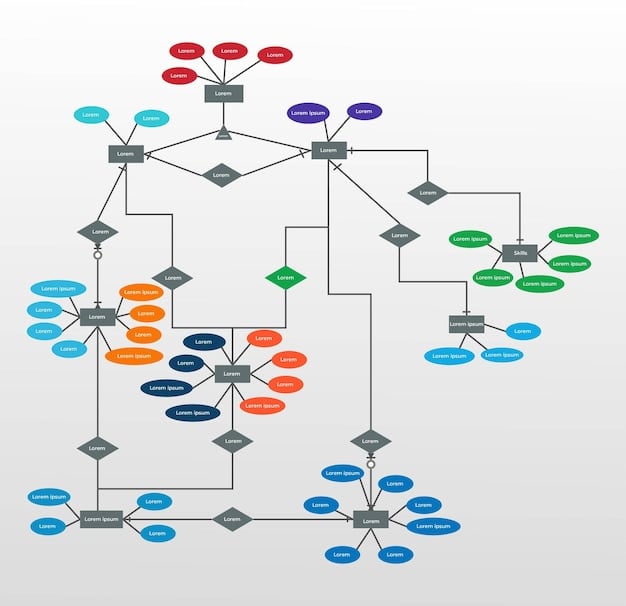Mexico’s Anti-Corruption Push: Impact on Foreign Business

The heightened focus on combating corruption in Mexico significantly alters the operational landscape for foreign businesses, demanding enhanced compliance, transparency, and a re-evaluation of previous engagement strategies to mitigate risks and foster sustainable investment in a more accountable environment.
The landscape for foreign businesses operating in Mexico is undergoing a significant transformation. As the Mexican government intensifies its efforts to combat corruption, questions arise about how will the increased focus on combating corruption affect foreign businesses operating in Mexico. This renewed emphasis on transparency and accountability introduces both challenges and opportunities, compelling international firms to re-evaluate their strategies and operational practices within this evolving environment.
Navigating Mexico’s Evolving Anti-Corruption Landscape
Mexico’s commitment to combating corruption has gained considerable momentum in recent years, spurred by a combination of domestic pressure and international scrutiny. This isn’t merely a fleeting political slogan; it represents a systemic shift aimed at dismantling entrenched networks and fostering a more equitable business environment. For foreign businesses, understanding the depth and breadth of these reforms is paramount.
The foundational changes include the implementation of a comprehensive National Anti-Corruption System (Sistema Nacional Anticorrupción, SNA), designed to coordinate efforts across various governmental agencies. This system aims to prevent, investigate, and sanction acts of corruption. It introduces new legal frameworks and strengthens existing ones, making it easier to prosecute corrupt officials and private actors alike.
Enhanced Regulatory Scrutiny
One of the most immediate effects of this intensified focus is the significant increase in regulatory scrutiny. Government agencies are now equipped with broader powers and a mandate to proactively investigate potential malfeasance. This means foreign companies can expect more rigorous due diligence requirements and a closer examination of their business practices, particularly in sectors historically prone to corruption, such as infrastructure, energy, and government contracts.
- Increased Audits: Companies may face more frequent and in-depth audits of their financial records and compliance programs.
- Stricter Due Diligence: Partnering with local entities now requires even more thorough vetting to ensure their compliance history and ethical standing.
- Enhanced Whistleblower Protections: New mechanisms may encourage employees or third parties to report corruption, leading to more investigations.
This heightened oversight, while potentially burdensome, also serves a crucial purpose: to level the playing field. By reducing the advantage gained through illicit means, legitimate businesses, both foreign and domestic, can compete based on merit rather than connections.
Furthermore, the Mexican government’s drive aligns with international anti-bribery statutes, such as the U.S. Foreign Corrupt Practices Act (FCPA) and the UK Bribery Act. Foreign companies already adhering to these stringent international standards may find themselves better positioned to adapt to Mexico’s evolving legal framework, as many of the principles are consistent. However, localized nuances and enforcement variations still require careful attention.
In essence, the evolving anti-corruption landscape in Mexico is creating an environment where compliance is no longer merely a suggestion but a fundamental requirement for sustainable operation. Businesses that proactively embrace these changes are likely to fare better than those who adopt a wait-and-see approach, as the risks of non-compliance are becoming increasingly significant.
Impact on Operational Costs and Business Practices
The increased focus on combating corruption in Mexico inevitably influences the operational costs and internal business practices of foreign companies. While the ultimate goal is a more predictable and fair market, the transition period often entails adjustments that come with financial and managerial implications.
A primary area of impact is the cost of compliance. Companies must invest more in robust compliance programs, including enhanced training for employees, diligent due diligence for third-party intermediaries, and sophisticated internal controls. This proactive investment is critical for mitigating risks associated with bribery, fraud, and illicit payments. It moves beyond merely having a policy on paper to actively embedding a culture of integrity throughout the organization, from top leadership to ground-level operations.
Redefining Engagement with Government and Regulators
Foreign businesses will need to reassess their engagement strategies with government officials and regulatory bodies. The era of informal payments or “facilitation fees” is, at least in theory, drawing to a close. Relationships must be built on transparency, adherence to legal frameworks, and ethical conduct. This shift requires a deep understanding of new procedural requirements and a commitment to formal, recordable interactions.
This redefinition can lead to initial delays as bureaucratic processes that once might have been expedited through informal means now take their legitimate course. Permitting, licensing, and contract approvals could experience prolonged timelines as government agencies scrupulously adhere to new, often more stringent, protocols. Companies must factor these potential delays into their project timelines and operational planning.
- Increased Legal Fees: Navigating complex regulations and potential investigations requires more legal expertise.
- Compliance Software and Systems: Investment in tools to monitor transactions and manage compliance risks becomes essential.
- Training and Internal Controls: Developing robust internal programs to educate staff and ensure adherence to anti-corruption policies.
Furthermore, the heightened scrutiny extends to supply chains and partnership agreements. Foreign firms are increasingly held accountable not only for their own actions but also for the actions of their local partners and distributors. This necessitates more thorough screening processes and potentially, the termination of relationships with entities that fail to meet new compliance benchmarks. While this can disrupt existing business models, it also presents an opportunity to forge stronger, more reliable partnerships built on shared values of integrity.
Ultimately, while these adjustments may elevate upfront operational costs and demand greater patience, they are essential for long-term sustainability and credibility. Businesses that internalize an anti-corruption ethos are better positioned to navigate the new Mexican business climate, reducing latent risks and enhancing their reputation among legitimate stakeholders.
Shifts in Risk Assessment and Mitigation Strategies
For foreign businesses, the heightened anti-corruption drive in Mexico necessitates a significant recalibration of traditional risk assessment and mitigation strategies. What might have been considered a manageable operating risk in the past could now expose a company to severe legal and reputational consequences. The emphasis has shifted from merely avoiding detection to proactively preventing any involvement in corrupt practices.
Companies must move beyond generic compliance checklists and adopt a more granular, Mexico-specific approach to risk management. This involves identifying specific areas of vulnerability within their operations, supply chains, and third-party networks that are susceptible to corrupt overtures. Industries like construction, energy, and services often present higher inherent risks due to their frequent interactions with public entities and complex regulatory environments.
Strengthening Internal Controls and Due Diligence
A pivotal aspect of updated risk mitigation is the reinforcement of internal controls. This includes implementing robust financial oversight mechanisms, clear approval processes, and a culture that encourages transparency and ethical reporting. Furthermore, the due diligence process for engaging with local partners, agents, and distributors must become significantly more rigorous. It’s no longer sufficient to merely check legal registration; companies must now delve deeper into the reputation, financial dealings, and political connections of their prospective partners.

This enhanced due diligence might involve conducting extensive background checks, scrutinizing financial records for unusual transactions, and even engaging forensic accountants when necessary. The objective is to identify and address red flags before they escalate into significant compliance breaches. Companies failing to properly vet their partners risk being held liable under international anti-bribery laws, even if they were not directly involved in the corrupt act.
Moreover, the establishment of clear ethical guidelines and a strong tone from the top of the organization are crucial. Employees must understand that there is zero tolerance for corrupt behavior, and that the company is committed to upholding the highest ethical standards, regardless of local customs or pressures. whistleblower protection mechanisms are no longer optional, but a vital component for early detection and prevention of corruption.
The implications of failing to adapt these strategies can be severe, ranging from hefty fines and imprisonment for executives to irreversible damage to brand reputation and exclusion from future business opportunities in Mexico. Therefore, continuous monitoring, regular risk assessments, and adaptability to evolving regulations are indispensable for foreign businesses navigating Mexico’s tightened anti-corruption landscape.
Investor Confidence and Market Attractiveness
The increased focus on combating corruption in Mexico carries significant implications for investor confidence and the overall attractiveness of the Mexican market to foreign businesses. Historically, perceptions of corruption have been a recurring deterrent for foreign direct investment (FDI), adding layers of unpredictable risk and reducing returns on legitimate ventures. A genuine, sustained effort against corruption can fundamentally alter this perception.
When investors perceive a market as transparent and fair, it reduces the risk premium associated with doing business there. This means lower perceived operational and reputational risks, which can translate into more favorable investment decisions. A clear, predictable regulatory environment where success is based on merit rather than illicit payments makes Mexico a more appealing destination for capital.
Leveling the Playing Field for All Enterprises
One of the most compelling arguments for combating corruption is its ability to level the playing field. When corrupt practices are prevalent, they often favor entrenched interests or those willing to engage in illicit activities, disadvantaging honest businesses. A robust anti-corruption framework ensures that all enterprises, foreign and domestic, compete on equal terms regarding tenders, permits, and market access.
- Enhanced Predictability: Reduced corruption leads to more stable and predictable business environments.
- Fairer Competition: Companies can compete based on innovation, quality, and price rather than illicit connections.
- Improved Reputation: A country’s reputation for integrity can attract higher-quality, long-term investments.
The presence of strong rule of law and an empowered justice system capable of prosecuting corruption effectively reassures foreign investors that their investments are secure and their contractual agreements will be honored. This builds trust, which is an invaluable currency in international business. For Mexico, gaining this trust could unlock significant new flows of FDI, particularly from countries and companies that prioritize ethical sourcing and responsible investment.
However, it’s also crucial to note that the impact on investor confidence isn’t immediate or unilateral. The effectiveness of anti-corruption measures is judged not just by their intent but by their consistent, unbiased enforcement. Any perceived backsliding or selective application of the law could quickly erode the gains made in bolstering investor trust. Therefore, sustained commitment and tangible results are essential for Mexico to fully capitalize on the potential economic benefits derived from a less corrupt environment.
In essence, the success of Mexico’s anti-corruption campaigns will be a pivotal factor in shaping its future economic trajectory, directly influencing how foreign businesses evaluate the opportunities and risks presented by this dynamic Latin American market.
Adapting to New Legal and Prosecutorial Infrastructures
Mexico’s intensified anti-corruption efforts are underpinned by significant reforms to its legal and prosecutorial infrastructures. These changes are designed to provide the necessary teeth for enforcement, moving beyond mere policy statements to tangible judicial outcomes. For foreign businesses, understanding these new mechanisms is crucial, as they directly impact potential liabilities and the framework within which disputes are resolved.
The establishment of specialized anti-corruption courts and prosecutors, alongside reforms to criminal and administrative laws, signifies a more serious approach to tackling corruption. These entities are intended to be independent and equipped with the resources to investigate complex cases involving both public officials and private entities, including foreign corporations. This means there’s a higher likelihood of prosecution and stricter penalties for those found guilty of corrupt practices.
Increased Cross-Border Cooperation
A notable trend accompanying Mexico’s domestic reforms is increased cooperation with international bodies and foreign governments. This includes sharing information, coordinating investigations, and facilitating extradition requests related to corruption cases. For foreign companies, this means that hiding illicit activities across borders is becoming increasingly difficult. Actions taken in Mexico could have direct repercussions in their home countries through mutual legal assistance treaties.

Furthermore, the focus is not just on overt bribery but also on illicit enrichment, influence peddling, and complex money laundering schemes. This broader scope means that even seemingly indirect involvement in corrupt networks could lead to legal jeopardy. Companies must ensure that their internal compliance programs cover these broader aspects and train their staff on the nuances of Mexican anti-corruption laws.
The shift towards a more robust prosecutorial infrastructure also implies that remediation and cooperation with authorities become critical for companies facing allegations. Prompt self-reporting, internal investigations, and full cooperation with Mexican legal proceedings can often lead to more lenient outcomes, mimicking practices seen under the U.S. FCPA. Conversely, obstruction or denial can result in harsher penalties.
In summary, foreign businesses operating in Mexico must recognize that the legal environment related to corruption is no longer static. It is dynamic, becoming more assertive, and increasingly interconnected with international enforcement efforts. Adapting to these new legal and prosecutorial realities is not just about avoiding penalties, but about building sustainable operations grounded in legality and integrity.
Opportunities for Ethical Business and Sustainable Growth
While the sharpened focus on combating corruption in Mexico presents challenges, it simultaneously unlocks significant opportunities for foreign businesses committed to ethical practices and long-term, sustainable growth. A less corrupt environment fosters market dynamics that reward innovation, efficiency, and genuine value creation over illicit influence or predatory practices.
Many foreign companies already operate under strict internal and external anti-bribery regulations, such as the FCPA. For these firms, Mexico’s anti-corruption drive merely aligns the local operating environment with their existing global compliance standards. This convergence can reduce the need for country-specific deviations in policy and simplify international compliance efforts, creating a more seamless global operational framework.
Attracting Responsible Investment
A cleaner business environment makes Mexico more attractive to a new segment of foreign investors: those who prioritize Environmental, Social, and Governance (ESG) criteria. These investors are increasingly scrutinizing the ethical conduct of companies and the integrity of the markets they invest in. Mexico’s progress in combating corruption can position it as a preferred destination for such responsible capital, which often comes with a longer-term investment horizon and greater commitment to local communities.
- Enhanced Reputation: Operating ethically in a challenging market can significantly boost a company’s global standing.
- Access to New Markets: A transparent environment opens doors to new sectors and government contracts that were previously inaccessible due to corruption.
- Reduced Unforeseen Costs: Eliminating bribery and illicit payments removes unpredictable (and often escalating) operational costs.
Furthermore, the emphasis on transparency can lead to more predictable and efficient bureaucratic processes in the long run. While initial adjustments might involve delays, the reduction of informal demands for payments can streamline operations once new, legitimate procedures are firmly established and consistently applied. This predictability greatly assists in planning, budgeting, and executing projects.
Foreign businesses that proactively embed anti-corruption measures into their core strategy can also gain a competitive advantage. By demonstrating a clear commitment to integrity, they can differentiate themselves from competitors who might still be clinging to old, dubious practices. This ethical positioning can resonate not only with government partners but also with consumers and talented local employees who prefer to work for reputable organizations.
In essence, the anti-corruption push in Mexico is an invitation for foreign businesses to participate in shaping a more resilient and equitable economic future. By embracing transparency and ethical conduct, these companies can not only mitigate risks but also unlock new avenues for legitimate growth and contribute positively to Mexico’s developmental trajectory.
The Imperative of Proactive Adaptation and Continuous Monitoring
The evolving anti-corruption landscape in Mexico is not a static phenomenon; it is a continuous process of reform, enforcement, and adaptation. For foreign businesses, this signifies that proactive adaptation and persistent monitoring are not optional but are fundamental requirements for long-term success and risk mitigation in the Mexican market. A reactive posture, waiting for issues to arise, will likely result in significantly higher costs and greater reputational damage.
Companies must establish dynamic compliance programs that are regularly reviewed and updated to reflect changes in Mexican law, enforcement priorities, and international best practices. This includes periodic risk assessments specific to their operations in Mexico, ensuring that new vulnerabilities are identified and addressed promptly. Training programs for employees should also be ongoing, reinforcing the company’s commitment to ethical conduct and keeping staff informed about evolving legal requirements.
Building a Culture of Integrity
Beyond formal compliance systems, the most effective strategy for foreign businesses is to foster an ingrained culture of integrity. This involves leadership setting a clear ethical tone, promoting transparency, and empowering employees to speak up against impropriety without fear of reprisal. A strong ethical culture serves as the first line of defense against corruption, making employees active participants in upholding the company’s values.
Continuous monitoring extends not only to internal operations but also to third-party relationships. Regular audits of distributors, agents, and other local partners are critical to ensure their ongoing adherence to anti-corruption policies. The principle of “knowing your partners” has never been more relevant, as the actions of third parties can directly implicate the foreign corporation they represent.
Furthermore, engaging with local legal counsel and compliance experts is invaluable. These professionals can provide real-time insights into the nuances of Mexican law, interpret new regulations, and guide companies through complex situations. Their expertise helps bridge the gap between global compliance standards and the specifics of the Mexican operating environment.
In conclusion, the increased focus on combating corruption in Mexico is a profound development that redefines the parameters of doing business in the country. Foreign companies that choose to view these changes not as impediments but as opportunities to strengthen their ethical foundations and improve their operational resilience will be best positioned to thrive in Mexico’s increasingly transparent and accountable future.
| Key Aspect | Impact on Foreign Business |
|---|---|
| ⚖️ Enhanced Scrutiny | Increased audits, stricter due diligence, and more rigorous regulatory oversight. |
| 💰 Operational Costs | Higher compliance investment, increased legal fees, potential initial delays in processes. |
| 📈 Investor Confidence | Improved market attractiveness, fairer competition, and greater predictability. |
| 🌍 Cross-Border Impact | Increased international cooperation in investigations, making illicit activities harder to hide. |
Frequently Asked Questions About Mexico’s Anti-Corruption Efforts
▼
Mexico’s intensified anti-corruption drive stems from public demand, international pressure, and a recognition that widespread corruption significantly undermines economic growth, governance, and social trust. These efforts aim to attract more legitimate investment and ensure a fairer business environment for all participants, whether domestic or foreign.
▼
The National Anti-Corruption System (SNA) is a comprehensive framework designed to prevent, investigate, and sanction corruption in Mexico. It involves coordinating efforts across various governmental agencies and civil society, establishing new legal mechanisms, and strengthening oversight to ensure greater accountability and transparency in public and private sectors.
▼
Initially, foreign businesses may experience increased bureaucracy and longer processing times for permits and contracts as informal channels are phased out and new, more stringent formal procedures are enforced. However, in the long term, these changes are expected to lead to a more predictable and transparent system, reducing reliance on informal practices and arbitrary decisions.
▼
Existing contracts and partnerships should be reviewed under the new anti-corruption lens to ensure full compliance. Foreign businesses must increase due diligence on current partners, as their actions could implicate the foreign firm under strict liability laws. Renegotiations or even termination of relationships might be necessary if partners fail to meet new ethical standards.
▼
The anti-corruption focus creates a more level playing field, rewarding ethical practices and fair competition. It improves market predictability, potentially attracting more responsible investment and enhancing Mexico’s appeal to ESG-conscious investors. Companies that proactively embrace transparency can gain a significant competitive advantage and build stronger, more sustainable operations.
Conclusion
The heightened focus on combating corruption in Mexico marks a significant inflection point for foreign businesses. While it certainly introduces new demands for compliance, increased operational scrutiny, and a recalibration of traditional risk assessments, it also ushers in a new era of opportunity. For companies committed to ethical practices, transparency, and long-term investment, Mexico’s cleaner business environment offers a more stable and predictable landscape. Navigating this evolving terrain requires proactive adaptation, robust compliance frameworks, and an unwavering commitment to integrity. Ultimately, businesses that embrace these changes are not just mitigating risks; they are positioning themselves for sustainable growth within a more equitable and trustworthy market economy.





